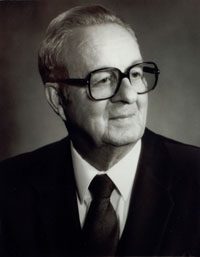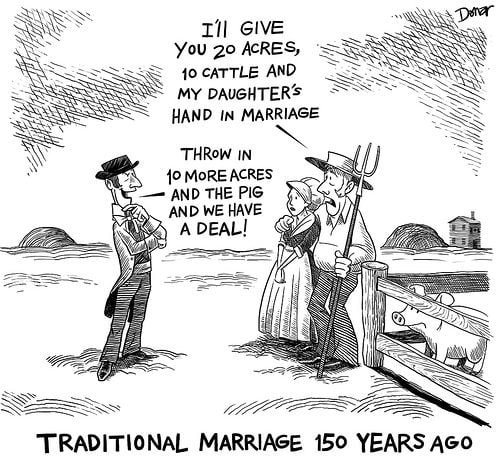
Linda LaScola recently sent me several questions that she asked me to answer about my past use of the words spiritual and religious. My answers will appear at a later date on the Rational Doubt blog.
Question One: When you were religious, did you also think of yourself as spiritual, or not? How did you talk about spirituality to the people in your congregation?
I spent most of my life solidly entrenched in Evangelicalism, so my answer to this question will reflect that tradition, and not views I held towards the end of my ministerial career. I never would have used the words spiritual or religious to describe my personal beliefs. Religion was what unsaved church members had and those who called themselves spiritual were new age practitioners who worshiped false Gods. I was a born-again, bought-by-the-blood, filled-with-the-Holy-Spirit Christian. Religion is what Christians-in-name-only did on Sunday. I was a seven-day, 168-hour-a-week, slave of the most high God. I devoted virtually every waking hour of my life to serving God, and when I dared to take a bit of me-time, I often battled thoughts of what better use could have been made of the wasted time spent relaxing. This is why during the twenty-five years I spent in the ministry, I only took a handful of vacations, and when I did, they were often connected to preaching engagements. I wouldn’t call my way of living the norm among Evangelical preachers, but I knew plenty of like-minded pastors who burned the candle at both ends, living by the mantras, only one life, twill soon be past, only what’s done for Christ will last and better to burn out than rust out.
Most American Christians, even in the Evangelical church, are nominal practitioners. They go to Sunday services when it is convenient, attend wedding and funerals, throw a few bucks in the offering plates, and when asked they say they worship God, love Jesus, and believe the Bible is the Word of God. However, their day-to-day lives say something far different: that they are Christian in name only. I considered these types of “Christians” as religious-but-lost. In my thinking, they were every bit as lost as Satanists, perhaps even more so because they had been deceived by false religion.
My view of “true Christianity” moderated over the years, but during my time as an Independent Fundamentalist Baptist (IFB) pastor and later as a Calvinistic Baptist pastor, I had a very narrow and defined view of what made someone a Christian and how a Christian should live. Some Christian sects, such as the Church of the Latter Day Saints, Jehovah’s Witnesses, and Seventh Day Adventists, I considered cults. Other sects, particularly the Roman Catholic Church, I viewed as promoters of a works-based false gospel. Mainline churches were, for the most part, filled with religious church members who knew little about what it meant to be a REAL Christian.
As you can see, I put most Christians in the religious-but-lost category. And even within the Evangelical church, there were plenty of unsaved members. I spend countless hours preaching sermons that were meant to show saved church members that they were actually lost; that they had “a form of godliness, but denying the power thereof” (2 Timothy 3:5); that they had a head salvation, not a heart salvation.
The spiritual category was reserved for new agers and others who dabbled in various esoteric, metaphysical beliefs and practices. I rarely came into contact with such people. I lived most of my adult life in the rural Midwest, and this insulated me from spiritual beliefs and practices found on the east and west coasts. Thus, I spent my ministerial years among true Christians and non-Christians who were religious-but-lost. I can’t think of an instance where I came into contact with someone who would have fit my definition of spiritual. This, however, didn’t keep me from warning parishioners about the dangers of the new age movement and its “spiritual” beliefs and practices.
Question Two: Did you go through a “spiritual but not religious stage” on the way to being non-religious? If so, please describe it (e.g., how long did it last, how/why did it change?) If not, how did you go from religious to non-religious? (e.g., through reading, thinking, talking with others, something else, some combination of the above). Please describe that.
As I detailed above, I never used the words “religious” or “spiritual” to describe myself. I was a Christian; a follower of the lamb withersover he goeth (Revelation 14:4); a slave of the most high God. My deconversion from Christianity was predicated on my disaffection towards organized Christianity. I pastored my last church in 2003, but didn’t leave Christianity until 2008. During this five-year span, my wife and I visited over one hundred churches, hoping to find a congregation that took the teachings of Christ seriously (or our interpretations of those teachings, anyway). You can check out the list of churches we attended here. We concluded that, regardless of the name over the door and the differences in liturgy and music, Christian churches were all the same. It was during this time, that I began to seriously question my beliefs. I decided to re-study the Bible — a book that I had spent thousands of hours studying, preaching thousands of sermons from its pages. I turned to authors who were in times past considered false teachers or apostates. Intellectually straying outside of the boundaries of Evangelicalism proved to be a real eye opener.
I have always been a voracious reader. My colleagues in the ministry considered me a bookworm of sorts. When I wanted to study a matter, the first thing I did was buy several books on the subject. My reading often led to me buy yet more books, until I reached a place where I thought I had adequately studied the matter. This practice resulted in several seismic theological changes such as embracing Calvinism and rejecting pretribulational, premillennial eschatology. While these changes caused a bit of a stir, they were considered to be within the boundaries of orthodoxy. The authors I read were also orthodox, so I was never exposed to non-Evangelical beliefs. No need, I thought at the time. I have THE truth, no need to look elsewhere.
It was when I began to read non-Evangelical authors that I realized that I had lived quite a theologically sheltered life. I also came to see that my pastors and college professors had lied to me about other theological systems of belief, the history of the Christian church, and the nature of the Bible — it being an inspired, inerrant, infallible text. Were these men deliberately lying to me? Perhaps, but I doubt it. When you are deeply immersed in a particular way of thinking, it is hard to see any other beliefs as true or even possibly true. In dealing with countless Evangelicals after my deconversion, I have learned that until believers can dare consider that they might be wrong, there is no hope of reaching them. Certainty of belief breeds arrogance, and this arrogance shuts the mind off from any belief that does not fit within the Evangelical box. (Please see The Danger of Being in a Box and Why it Makes Sense When You are in it and What I Found When I Left the Box.)
Once I intellectually wandered outside of the safe, orthodox confines of Evangelicalism, I was exposed to thinking that turned virtually everything I believed on its head, beginning with what I believed about the inerrancy, inspiration, and infallibility of the Bible. If I had to point to one author who did the most to wreck my faith, it would be Bart Ehrman. Ehrman thoroughly demolished my beliefs about the nature of the Bible — that it was a supernatural text written by God through supernatural human instrumentality. Once the Bible lost its power over me, the house I had built on its foundation quickly came tumbling to the ground. More than a few former colleagues and parishioners suggested that I stop reading books and only read the Bible. They thought if I would just read the Bible that all my questions and doubts would go away, when in fact it was my reading of the Bible with enlightened eyes that finally brought an end to my belief in the Christian God.
If I were to give some sort of testimony about my loss of faith, I would say that my doubts about Christianity began with my general disaffection towards organized Christianity. This emotional upheaval then led me to reconsider my beliefs. For many years, I was unwilling to admit that my deconversion had an emotional component. I knew that if people thought I left Christianity for emotional reasons that they would dismiss my story. So I focused on the intellectual reasons for my leaving Christianity. I now see that my leaving the ministry and subsequently leaving Christianity was an admixture of emotional, psychological, and intellectual factors. That said, the ultimate reason that I am not a Christian is that I no longer believe the Bible and its teachings to be true. I reject the central tenets of Christianity. While I am of the opinion that the Jesus of the Bible was likely a real person, he was not a miracle-working God-man who died on a Roman cross to atone for the sins of the world and rose again from the dead three days later. He lived and he died. End of story.
Question Three: If you know people who are spiritual but not religious, what are they like? (e.g., were they ever a member of an organized religion? If so, what made them leave?) Are their current beliefs tied to a specific religion (e.g., Christianity, Judaism) or are their beliefs more individual or amorphous? How to they express their spirituality? (e.g., do they pray, do they think things happen for a purpose, or do they feel a sense of being watched over or not being alone? Do they believe in an afterlife?)
I know a handful of people who consider themselves spiritual. These people generally believe that there might be some sort of inner light/higher power/divine essence/energy force, but they have little use for organized Christianity, and no use for Evangelicalism. Some of them have embraced Buddhism, paganism, or earth-based religions. All of them, at one time, were mainline or Evangelical Christians. In the 1970s, I attended a large IFB church in Findlay, Ohio. Trinity Baptist Church had a sizeable high school youth group. In recent years, I have become reacquainted with a handful of friends from my Trinity youth group days. None of them is still practicing the “faith once delivered to the saints.” While I am the most outspoken heathen of the group, the rest of them are far from the Baptist teachings of their youth. None of us would be considered Christians by the men who were once our pastors.
Bruce Gerencser, 66, lives in rural Northwest Ohio with his wife of 45 years. He and his wife have six grown children and thirteen grandchildren. Bruce pastored Evangelical churches for twenty-five years in Ohio, Texas, and Michigan. Bruce left the ministry in 2005, and in 2008 he left Christianity. Bruce is now a humanist and an atheist.
Connect with me on social media:
Your comments are welcome and appreciated. All first-time comments are moderated. Please read the commenting rules before commenting.
You can email Bruce via the Contact Form.

 We have been talking about liberalism in Christianity. I want now to talk about a fundamental, local, New Testament church like this one and others, scattered across America. There is coldness and worldliness even in these churches.
We have been talking about liberalism in Christianity. I want now to talk about a fundamental, local, New Testament church like this one and others, scattered across America. There is coldness and worldliness even in these churches.










